Year after year we make resolutions to exercise regularly, eat well, and give up smoking and other bad habits. Following such basic rules can cut heart disease risk by 80 percent, diabetes risk by 90 percent and cancer risk by 50 percent, according to the Harvard Nurses' Health Study. But most of us fail to keep our promises to ourselves. Last year, The Globe asked three prominent local experts for some practical ways to get -- and stay -- healthy. To us, the advice holds up for 2009, but you be the judge. At the end, tell us which tip you think is the most useful.
Year after year we make resolutions to exercise regularly, eat well, and give up smoking and other bad habits. Following such basic rules can cut heart disease risk by 80 percent, diabetes risk by 90 percent and cancer risk by 50 percent, according to the Harvard Nurses' Health Study. But most of us fail to keep our promises to ourselves. Last year, The Globe asked three prominent local experts for some practical ways to get -- and stay -- healthy. To us, the advice holds up for 2009, but you be the judge. At the end, tell us which tip you think is the most useful.
Year after year we make resolutions to exercise regularly, eat well, and give up smoking and other bad habits. Following such basic rules can cut heart disease risk by 80 percent, diabetes risk by 90 percent and cancer risk by 50 percent, according to the Harvard Nurses' Health Study. But most of us fail to keep our promises to ourselves. Last year, The Globe asked three prominent local experts for some practical ways to get -- and stay -- healthy. To us, the advice holds up for 2009, but you be the judge. At the end, tell us which tip you think is the most useful.
Year after year we make resolutions to exercise regularly, eat well, and give up smoking and other bad habits. Following such basic rules can cut heart disease risk by 80 percent, diabetes risk by 90 percent and cancer risk by 50 percent, according to the Harvard Nurses' Health Study. But most of us fail to keep our promises to ourselves. Last year, The Globe asked three prominent local experts for some practical ways to get -- and stay -- healthy. To us, the advice holds up for 2009, but you be the judge. At the end, tell us which tip you think is the most useful.
2)
Wear a pedometer. New research suggests that routinely wearing a pedometer encourages people to walk about an extra mile each day, lose weight, and lower their blood pressure. Aim for at least 30 minutes of brisk walking and a total of 10,000 steps per day.-Dr. JoAnn Manson, chief of the division of preventive medicine at Brigham and Women's Hospital and professor of Medicine at Harvard Medical School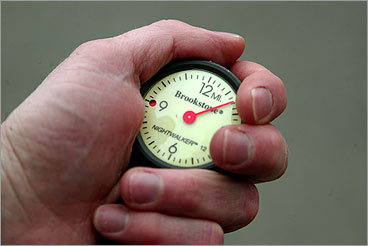

3)
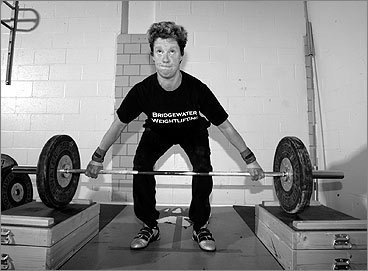 Don't forget strength training, involving both the upper and lower body. Too many people neglect resistance exercise, particularly women for whom it's crucial for preventing muscle and bone loss with age. Lift weights for at least 20 minutes, two- to three-times per week.
Don't forget strength training, involving both the upper and lower body. Too many people neglect resistance exercise, particularly women for whom it's crucial for preventing muscle and bone loss with age. Lift weights for at least 20 minutes, two- to three-times per week.4)
Don't pop too many vitamins. Enthusiasm for vitamin pills is high, but evidence for their benefits is low. Try to get vitamins from foods and consider a multivitamin for insurance. Any woman thinking about getting pregnant should make sure to take a folic acid supplement. Women should get at least 1,000 mgs of calcium per day (1,200 mgs/day if you're past menopause) from food and/or supplements. Everyone should also get 800 international units of Vitamin D per day -- more than the federal "Recommended Daily Allowance."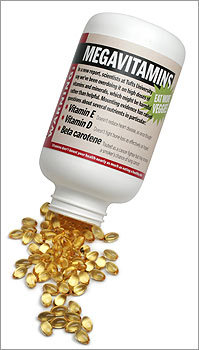

5)Eat at least two fish meals per week. The evidence is strong that the oils in darker types of fish, such as salmon, tuna, mackerel and herring, are beneficial for the heart and brain and may even lower risk of cancer

6)Drink water. No matter where you are, water should always be the first thing you reach for when you're thirsty. Water truly is essential.

7)
Sleep 8 hours a night. A number of recent studies have confirmed that you really do need at least 8 hours a night. Among the many benefits: Adequate sleep makes you feel better, decreases risk for cardiovascular disease, boosts memory and reduces the likelihood of being in a car accident.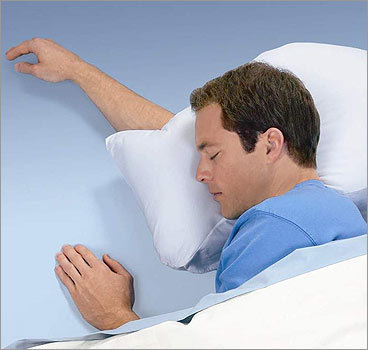

8)
Keep sugar and caffeine -- the "legal evils" -- to a minimum. It's hard to believe, but decreasing sugar actually increases people's energy, by minimizing the highs and lows that sweet foods triggers. Different people react differently to caffeine, but most of us are probably overstimulated already -- adding a stimulant just adds to things like road rage.

9)
Consider acupuncture and massage as valid therapies for chronic problems, such as back pain and neuropathy. Seeing a good massage therapist for neck strain may work better than taking extra strength Tylenol and/or Advil regularly.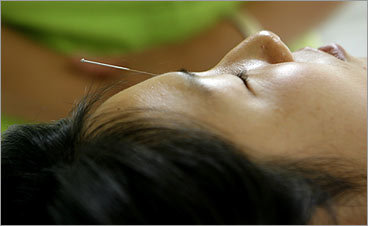

No comments:
Post a Comment